0:00-8:53: Greetings! We’ll save you the early problems with Skype and just take you to where things finally straightened out, and Jeff and Graeme were able to just start talking about, y’know, the Internet and happiness and babies slipping on ice and OUTRAGE! and stuff.
8:53-32:10: And then we get a chance to get into it: Neil Gaiman’s new issues of Miracleman have been pulled from Marvel’s solicits! Why? Who? What? Where? And is the opening Jeff needs to get his take on the Miracleman mythos published? We answer nearly none of those questions! But we do discuss how Jeff would do in a debate against Donald Trump, so…
32:10-48:19: Graeme has been reading the Secret Wars crossover isssues now that they’ve hit Marvel Unlimited and…he’s pretty uninterested! Is that just because Graeme is more of a DC man, or does Jeff, who is more of a Marvel man, also have the same problem? A lot of talk about the pros and cons of Marvel Unlimited, Jeff and the ‘90s, SPOILERS for the Secret Wars: Civil War miniseries, the emotional investment necessity for alternate universe stories, and more.
48:19-57:27: A mean, off-handed comment from Jeff has Graeme talking about a book he’s been catching up on and enjoying: Harley Quinn by Jimmy Palmiotti, Amanda Conner, and Chad Hardin. Graeme talks a little bit about why the book works for him, why he wishes more books could have this sense of fun, how Harley should or shouldn’t be linked to DCYou, and more.
57:27-1:02:44: “Wait, how did we end up talking about Frank Tieri?” Graeme asks. Jeff’s reply: because he read and enjoyed This One Summer by Jillian Tamaki and Mariko Tamaki, published by FirstSecond Books. NOTE: due to Jeff being a dumb-ass, he refers to Mariko Tamaki as the illustrator and Jillian Tamaki as the writer, when it is actually the other way around. The dumb-ass regrets the error.
1:02:44-1:18:30: The other book Jeff read and wanted to discuss is Patience by Daniel Clowes. Jeff finished reading the book a half-hour before the recording of the podcast and he has a plethora of feelings to work out about this book, about Clowes’ work, and about the things Clowes tries and accomplishes in Patience. Also discussed: time travel, the thing that Graeme loves; Seconds by Bryan Lee O’Malley; the butterfly and the blood spatter; and more.
1:18:30-1:30:24: Graeme received a review copy of Mary Wept Over the Feet of Jesus: Prostitution and Religious Obedience in the Bible by Chester Brown but didn’t get a chance to read it before this was recorded, so we spend a certain amount of time talking about Brown’s previous book on sex work, Paying For It, Brown’s previous comics work covering the New Testament, and more.
1:30:24-1:40:08: Similarly, Jeff has read I Hate The Internet by friend of the podcast Jarett Kobek, a book that mentions, among many, many other things, both this podcast and these podcasters. So we are going to discuss it in two weeks when Graeme has read it. Why not pick up a copy and also read it so you can be in on the discussion when we do? If you were a fan of, say, Kurt Vonnegut, you might quite like it.
1:40:08-1:56:02: Graeme has read the first issue of Dept. H (or Depth) by Matt Kindt coming out from Dark Horse (with colors from Sharlene Kindt) and quite liked it. We discuss Matt Kindt, Jeff Lemire, and Ray Fawkes and Jeff’s sense of regret for not looking more deeply at the work of these comics creators who are doing what should be Jeff’s jam but totally enjoying the arguably easier work of Ben Marra’s Terror Assaulter: O.M.W.O.T.
1:56:02-end: Closing comments…or are they? Because Jeff has a story about playing superheroes with his niece that he thinks is worth your time. And then: look for us on Stitcher!Itunes! Twitter together and separately: Graeme and Jeff! Matt! Tumblr!
Our special thanks to the kind crew at American Ninth Art Studios for their continuing support of this podcast, as well as our continuing special thanks to the Empress Audrey, Queen of the Galaxy…and to all 117 of our supporters on Patreon who make all this possible.
NEXT WEEK: We are on a break. Rest up your ears!
TWO WEEKS FROM NOW: Batman v. Superman v. I Hate The Internet. Be there!
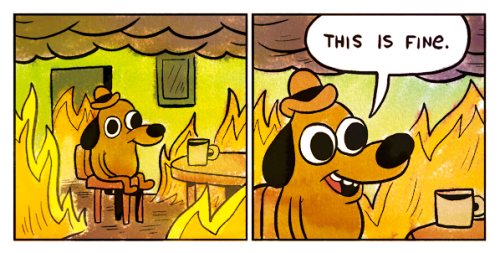
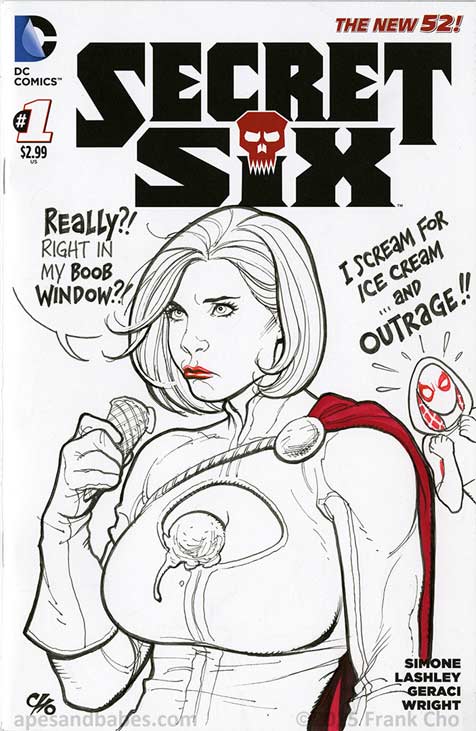

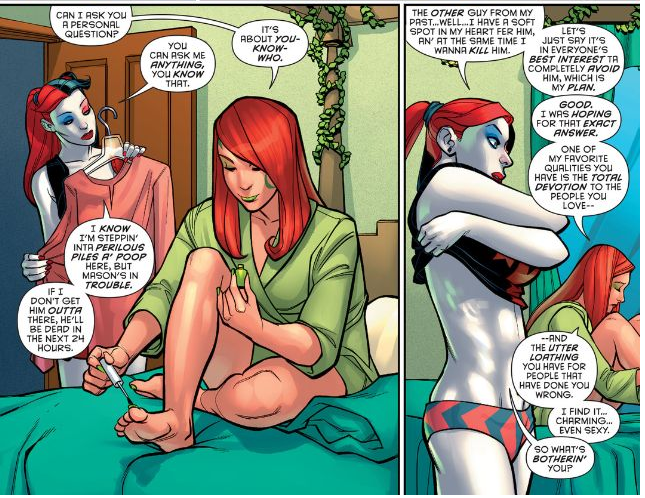
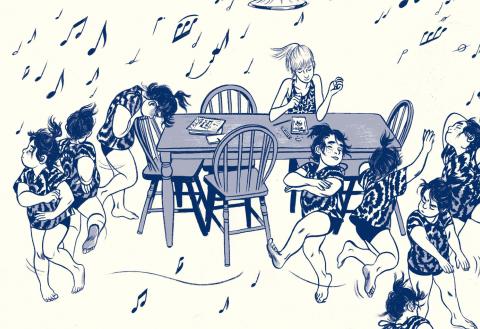
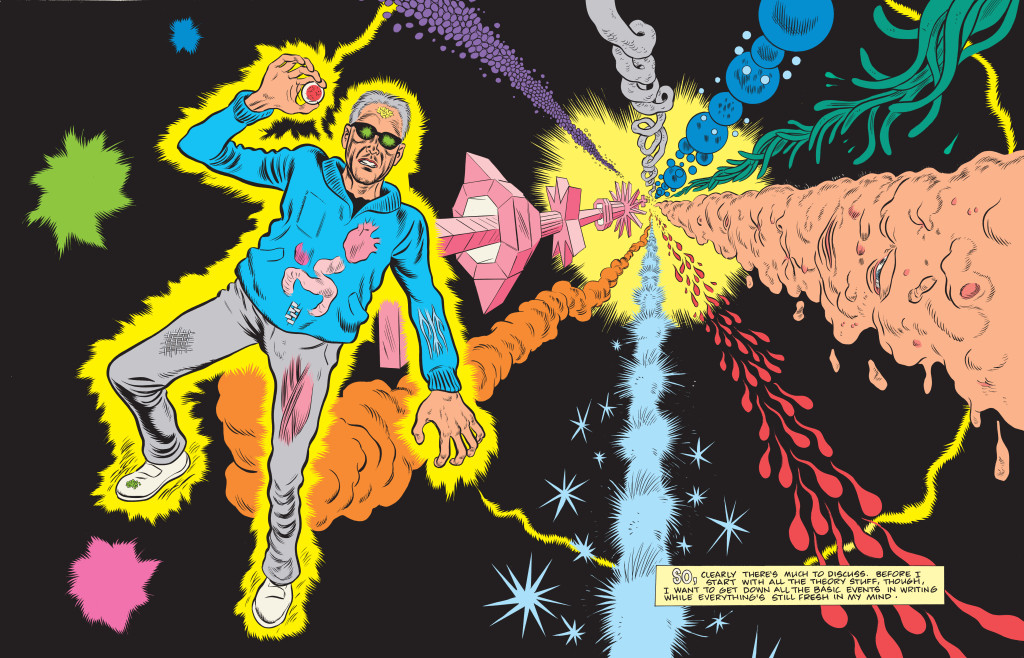
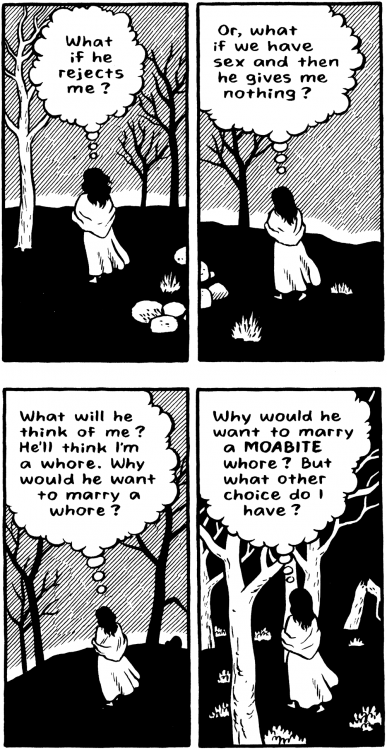



Yup, we’ve got the direct link for your copying and pasting needs, too!
http://theworkingdraft.com/media/podcasts/WaitWhat197.mp3
Enjoy!
I’m afraid I’m going to grump a bit preemptively about your friend’s book. Bluntly, straight, able-bodied, cis-gendered white men are not in a position to accurately judge the overall impact of the Internet unless they make a lot of effort to learn what’s up with others. For instance….
* Suicide rates for people with many kinds of permanent disabilities are down, and the possibilities for communication among housebound people are providing mounds of better data for diagnosis and treatment (along with organizing for political lobbying).
* The time between self-identification as gay or bi and coming out is down. More gay and bi people are coming out at all, rather than remaining closeted. The net makes new kinds of abuse possible, but also new kinds of support. As with all the rest of these categories, there are private forums that one is unlikely to know about, particularly if you’re not part of the target population, without social media connections.
* The time between self-identification as trans and beginning transition is down. On the youth end, there are a lot of kids and young adults getting real support and treatment rather than remaining closeted, and on the older end, there are more people in their 40s-60s resolving general malaise into body dysphoria and transitioning. With trans people now the targets of choice for organized homophobic hate mongering lobby groups, net communities for trans people are absolutely crucial in organized response.
* Black Lives Matter exists. So do groups for Latinxs, Asian-Americans, and others. Net-coordinated response played a very large part in removing the legislative barriers to properly including Native American women on reservations in the protections offered by the Violence Against Women Act.
* Net-based networks of working women play a very large part in better reporting of sexual harassment and abuse. Women-run private forums for survivors of sexual assault and rape do an amazing job of helping women who’ve been badly treated by law enforcement and society at large. (The same is true for their counterpart networks for men who’ve been raped and assaulted.)
* On the purely personal level…I have a new British friend whom I got to know on File770.com, an sf fandom blog. Like me, she’s permanently disabled. She’s having acute problems with pain lately, and struggling with the appeals for some denied support in the midst of the Conservative Party’s ongoing butchery of health care there. She tells me that my particular mix of Instagram and Facebook posts provide her some good cheer and welcome distraction on bad days – stuff one person posts in Seattle while sick, hurting, and despondent in hopes of some self-cheering also cheers someone in the same situation in England.
This is not to deny the healing power of a really good venting. (Speaking of which, just pledged to your Patreon. :) ) But I was first boggled, then annoyed, and now frequently offended by “I hate the Internet and it should burn” jeremiads from people who show no sign of the first damn clue about the death and misery that would follow if they got their way, and I’m tired of it. It’ll take a whole lot of selling to make me want to give this one my reading time.
@Bruce Baugh
I appreciate your reservations about the book, and I share some of them. That having been said, it strikes me that the jury is still out on the Internet’s role in social movements. For every scholar in media studies that claims it as a platform for marginalized voices there’s another who argues that it’s a vehicle for the hegemony. If it’s like every other media technology then we’re probably safe in assume the answer isn’t in between the poles but somewhere else entirely.
I do feel inclined to add that upon finishing the book, I felt it might be better titled “I Hate What the Internet Economy Did to San Francisco.” As I mentioned in my earlier post about the book, it’s strongest as an argument against the Internet economy, and the ways in which the technological infrastructure (base) inflects the political and economic culture around it (superstructure). The book is almost old-fashioned in its Marxism, which I found oddly refreshing.
Nate A: I’m speaking mostly from personal experience, including the lives of people I know well. It happens that people I know well include a lot of folks with histories in organizing support for people in various kinds of need, including documenting the needs – I know more folks who work routinely with stats than most people outside academic research, likely. :) In any event, I love the “isn’t between the poles” line. Great truth.
I’m much more comfortable with rants about what net economics have done to various places. I see changes in my well-liked Seattle that I don’ t approve of at all, and that are in some cases outright risky for folks like my LGBT friends. So screeding about that can carry on with my blessing!
“I’m speaking mostly from personal experience.”
And your personal experience is certainly valid! But I’d say that when trying to evaluate massive concepts like social media or the internet as a whole, we have to try and “pull out” and get a sense of the bigger picture.
I have no doubt that certain aspects and places of social media have helped minorities in absolutely vital ways, in terms of finding acceptance, coming together, having someone to talk to in desperate times. As a cis white male, I can never know what it’s like to be a minority. But I CAN actually know what it’s like to find comfort, solace, and possibly life-saving dialogue due to social media. I’ve suffered from depression and there were indeed times when I was VERY grateful for the internet and social media being there so that I could connect with certain people who helped me. So, with respect (and I really mean that–respect), I think I can take my own circumstances and extrapolate them out in order to get an idea of how tremendously helpful and vital social media could be for minority groups.
But on the other hand, the internet and social media is quite obviously driving everyone insane, across the board, to the extent that people are freaking out like never before. To exaggerate only mildly, it is driving us all insane. So, if it’s all driving us crazy on a mass scale, then pointing out the good/helpful aspects here and there is kind of missing the forest for the trees in my opinion. If the entire forest is burning down, then talking about how “Hey, fire has been known to help cook meals for SOME of us” is kind of… I dunno… taking our eyes off the larger issue.
But I hasten to say: It isn’t like any of us have much of a choice in this! We can try to be polite and manage our own internet use as best we can, to try and contribute toward the best social climate for all of us. But… somehow I think most of us know all that already, and have known it for some time, and yet to whatever extent we are mentally able to make an effort to improve things online… it does not seem to be really enough to stem the tide of “where this is all going”. Because we ourselves just cannot resist it.
People are seriously complaining about “Vision” for the Redskins thing? I assume these are people who don’t like the Redskins name (I don’t either). But wasn’t the thing in “Vision” actually anti-Redskins? So, people are upset because the book even dared broach the topic?
I don’t get it.
And that’s the thing. In general I think that basically our technological world is just overcomplicating itself so much that no one can really “get it” enough to have an informed enough opinion. (This in my opinion is part of the reason why the ’60s protest groups splintered, because society itself was becoming more complicated then, as it always is, and the more complicated individual and subgroup realities become, the less other individuals and subgroups can actually work with them in a cohesive way.)
And what I just did there, a few paragraphs ago, was almost enough to make me go on Twitter and put out outrage over “Vision” outrage… and my outrage over their outrage may actually be… misinformed. I think there’s a lot of that kind of thing going around.
In terms of the comic-centric internet in particular, I think a lot of it is akin to what they call “virtue signalling”. Someone puts out of message, approving or disapproving of something, in order to pose in a certain way, in order to seem virtuous. Even Frank Cho with his “Outrage!” meme is sort of “virtue signaling” that HE is so virtuous that he is ABOVE OUTRAGE… and yet his every “Outrage!” image has the underlying message that he is actually “outraged by THEIR outrage”. None of this would be happening without the internet and its accelerating cycle driving everything to a place where there less and less time for nuance or considered thought.
Studies have shown that internet use, especially on social media, tends to make people generally depressed. There are literally hundreds of studies on this. So in spite of the pronounced cases in which internet counseling and consoling can literally save people’s lives, in general the internet makes people feel lousy and alienated. That’s the general trend, off-set here and there by tremendously positive stories. “Social media tends to cause mild depression/anxiety” is a scientific reaction akin to “fire can burn human flesh” or “listening to Jackson 5 makes people happy.”
At the risk of sounding naive, I think Graeme is right on when he still finds ways to laugh at Donald Trump, And that’s not to downplay the threat Trump could pose. But you have to be able to laugh at this stuff. It’s absurd and SOME of it is an overreaction. How could it not be? These same people are outraged over Black Panther variants. If Donald Trump is really Hitler, then people should (would?) not be outraged over Black Panther variants. (And, honestly, I’m sorry, but EVERY Republican candidate has been called Hitler by the Left. Just like EVERY major Democrat has been called a communist by the Right. This is not new. You think it feels different with Trump? The Right experienced this same thing, on their own terms, eight years ago when they were SURE that this time it really was different, because THIS TIME the Democrat REALLY WAS a communist. That’s what they thought! They really, really thought it, and they were really, really scared.)
There is a loss of sane valuations, especially in terms of their relations to each other–and especially, especially in terms of outrage. The Right is guilty of it as well: every immigrant is an “INVADER!”… but the same people who think that immigration is the equivalent of the “white race being genocided”: on their Facebook pages they’re probably posting about how outraged they are that their Netflix connection isn’t working. Think think they’re being “invaded” and “genocided”, and yet they have time to complain about petty foibles. Similarly we have people who think Trump is the next Hitler, and yet they spent last weekend binge-watching “Daredevil” and complaining about variant covers. And I’m not making a direct equivalency between Right and Left “outrage!” here, but, all the same, the priorities just don’t add up to anything sane. Across the board it is all getting weirder and weirder, and making less and less sense, and getting potentially more and more dangerous. But, at the very least, you gotta keep your sense of humor when you can find it!
Is the Internet making us depressed? Or is Facebook/Instagram where everyone is sharing this curated image of themselves?
I was browsing Facebook every morning on my way to work and I was getting increasingly enraged and felt pulled back into depression because I was seeing my schoolmates graduating and going abroad and being generally happy while I was on dirty bus on the way to pull uncompensated overtime at an … I guess ok for now job (but really not on the long term).
Then I quit Facebook and I got a lot more chill. But I was still on blogs, on Reddit, on Tumblr, on Twitter. I consume Internet by the truckloads and I feel fine. I think there’s just a particular way of consuming it that’s harmful.
I wonder sometimes if one of the reasons “outrage culture” (That term sorta sits ill with me, for several reasons) is a natural reaction to how accelerated the Internet’s new cycle is–there’s SO MUCH out there and more and more comes in every second and I wonder if this is just reaping the whirlwind for reading site after site that demands 15 new hot takes about trivial inside baseball nonsense, like whether BATMAN VS. SUPERMAN is “too dark” every half-hour and tacitly demanding you react to this assertion.
Eventually there just comes a point of frustration and one just explodes in some sort of completely sideways overreaction to the most trivial nonsense possible.
I don’t know, just occurred to me while you were speaking about it on the podcast.
That’s certainly a very common thing for those of us with chronic depression and the like. I’ve long thought that a lot of bad behavior on the net comes from people stuck in anhedonic conditions like depression, without proper diagnosis and/or treatment, who rage because it’s not as scary as the numbness that’s the only alternative when your brain is doing that junk.
I think that outrage culture and what you’re describing are two (albeit overlapping) things.
But I do agree that a lot of “trolls” (of the /b/ /pol/ 8chan ilk) are people with forms of depression who cannot manage it. Even a lot of people who are managing it with various degrees of success turn to that sort of behavior from time to time.
Well, yeah, I’d agree they’re overlapping. I was talking about a set of causes: being stuck in a terrible emotional and physical state where lashing out provides momentary relief. Flailing around and outraged on slight excuse is an outcome, that can have very different sorts of causes.
What I wonder, though, about some selected examples of someone outraged online is relevancy. Lots of people say lots of things. The overall effect of a lot of people saying things is cumulatively significant, absolutely. (I have PTSD. I live this.) But when it comes to a particular post, I like to know about its scope. Is anyone passing it on? Is it seen by very many people? Is it generating responses? How much does it actually matter.
Blogger Kevin Drum coined the great phrase “nutpicking” (and admits that he’s often guilty of it himself, because frankly it’s often fun :) ).
Not to derail whatever the hell is going on in the comments above me, but … Holy cow, I picked up some random old issues of Worlds Finest in the Comixology sale just cause and happened to stumble across #289, “The Kryll Way of Dying.” Not sure if you guys have read this before, or if it was common knowledge to everyone but me, but, holy crap, that was the single most entertainingly homoerotic Batman/Superman story I have ever read by a country mile and I felt the need to share. If you’ve never read it, Batman and Superman spend a night in the Fortress of Solitude weeping, embracing and coming THIS close to making out while weird little alien penises have sex with each other. You think I’m exaggerating? Check it out for yourself. Amazing! I heartily commend it to everyone.
Holy cow! PURCHASED.
I’d love any more recommendations for stuff on that sale. Every issue I look at, I get hilariously underwhelming descriptions like these:
“The Man With The Molten Touch; a living stalagmite named Stalagron attacks Superman with a Kryptonite meteor while Batman fights off a bunch of bats.”
A BUNCH OF BATS?
I picked up the Stalagron arc also, which picks up the next issue after 289 with walking back Bruce Wayne’s heterosexuality by immediately having him make out with his Japanese masseuse. Presumably he goes on to fight stalagmites or bats or whatever after that, but I promptly fell asleep, so i guess I won’t know until I finish reading it tonight, Happy to let you know if it’s worth bothering with.
289, though, you guys have got to discuss that one on the show. It blew my mind.
The terrifying part is it really rings a bell–I want to say someone wrote a Cracked article that covered it?
In any event–I totally bought five minutes after your comment and am looking forward to reading it!
Chris Sims blogged about 289 about three times over the years at various sites.
I’ll have to look for that, Chris is usually pretty funny. By the way, the Stalagron two-parter was pretty crap, though the gonzo nature of the villain was mildly entertaining.
Food for thought. All the “lols” in the world won’t help when you’re pseudo-interacting with people and thought-forms that aren’t really there.
“Heavy social media users ‘trapped in endless cycle of depression’
Frequent users of social media are nearly three times more likely to develop depression”
http://www.independent.co.uk/life-style/health-and-families/health-news/social-media-depression-facebook-twitter-health-young-study-a6948401.html
Gents,
Two thoughts on another excellent podcast:
1) I laughed so hard at your Frank Tieri joke I snorted coffee through my nose. It burned, but it was worth one of the hardier laughs I’ve had talking about comics.
2) You both should really pay more attention to Valiant. It’s doing the opposite of all of the things you complain about Marvel and DC doing.
Unlike Marvel, it’s not publishing a zillion books just to meet its numbers and then cancelling them without promotion or support. Nothing they launch feels doomed to failure right out of the gate (see, e.g. half the “All New All Who the Heck Wanted a Starbrand Monthly?” line). To the extent things have wrapped up, they’ve done so in satisfying and unrushed ways. To the extent things have succeeded they’ve gotten reasoned and measured follow up. For example, the Divinity mini-series sold well, so they are publishing a second. If DC or Marvel had gotten their hands on it, there’d be three new Divnity ongoings, two miniseries, and he’d be guest starring in Spiderman.
And, unlike both Marvel and DC, there’s a clear method to their madness besides filler in between big events. The monthlies tell compelling stories month in and month out that by and large aren’t bogged down by crossovers with the “big event.” While there are sometimes one-shots tying in the core books to the events, they’re never essential to either the core book or the event. But, they feel like genuinely great additional content if you’re a fan of either (see, e.g., the great Book of the Dead one-shots, which were probably worth it just to see Bloodshot the pirate).
I’ve dropped virtually every Marvel and DC book from my list, and have added virtually the entire Valiant line.
PS How can two Doctor Who fans not like the clearly Who inspired Ivar the Timewalker?